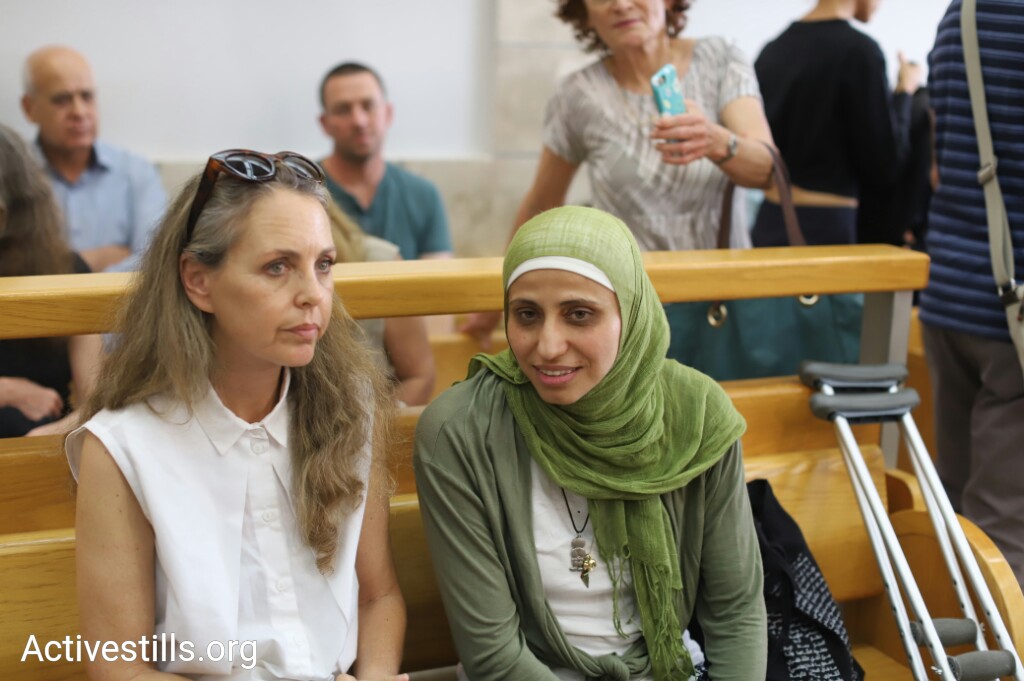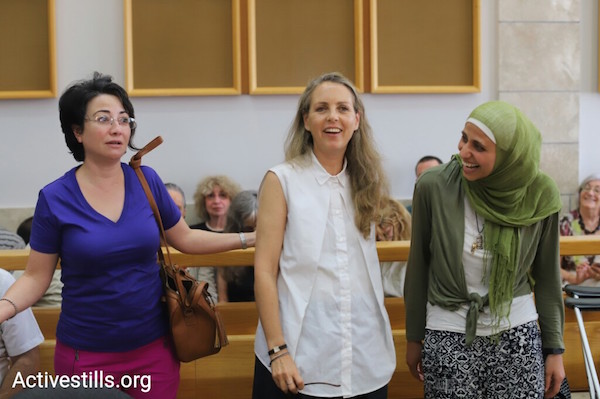Dareen Tatour was arrested in 2015 and held in house arrest for nearly three years for publishing a poem on Facebook. On Thursday morning, an Israeli court convicted her of incitement to violence and support for a terrorist organization.
By +972 Magazine Staff

An Israeli court convicted poet Dareen Tatour, a Palestinian citizen of Israel, of incitement to violence and support for terrorism on Thursday. The conviction comes nearly three years after she was first arrested for publishing her poetry on social media.
Tatour, 36, hails from the village of Reineh near Nazareth. She was arrested on October 15, 2015 after publishing a number of poems on her Facebook page, including “Qawem Ya Sha’abi, Qawemhum” (“Resist my people, resist them”).
That poem was published in 2015 (read an English translation here) at the height of Palestinian protests across Israel and the West Bank and during a wave of so-called lone-wolf stabbing and vehicular attacks against Israeli security forces and civilians, largely in Jerusalem and Hebron. A few days after Tatour posted “Resist my people, resist them” on Facebook, police stormed her house and arrested her in the middle of the night.
Following her arrest, Tatour was imprisoned for three months, then released and put under house arrest in an apartment in Kiryat Ono, just outside Tel Aviv, at the demand of Israeli authorities. She was forced to wear an ankle monitor, was forbidden from using the internet, the phone, or any other means of communication.
In May 2017, an Israeli court decided to ease the conditions of her arrest, allowing her to live under house arrest in her home village, where she may only leave her house accompanied by a custodian.
In November of 2016, Tatour testified and admitted that she had written the statuses. She explained that she was protesting the occupation, denouncing the crimes committed against Palestinians by the Israeli army and the settlers, adding that the police translation distorted her texts. Throughout the trial, the defense called a cast of experts on Hebrew and Arabic literature to testify about the various meanings of specific words and phrases used by Tatour in her art, as well as the nature of political poetry, and how even some of the most oppressive regimes in the world have tolerated dissident poets.

“The court convicted me of terrorism. If that’s my terrorism, I give the world a terrorism of love,” Tatour said after the verdict.
In July 2016, over 150 literary icons, including Alice Walker and Dave Eggers, signed a letter in solidarity with Tatour, calling Tatour’s imprisonment “part of a larger pattern of Israeli repression against all Palestinians.” Over 1,000 Israelis signed a petition in August 2017 calling for Tatour’s release.
Asked if she was optimistic, Tatour replied, “So-so. I am trying to remain optimistic. There is a poem in my book about handcuffs, which terrifyingly enough came true. They say that every poet is a prophet, and I feel that. In this country we cannot be too optimistic, but I am trying my best.”
